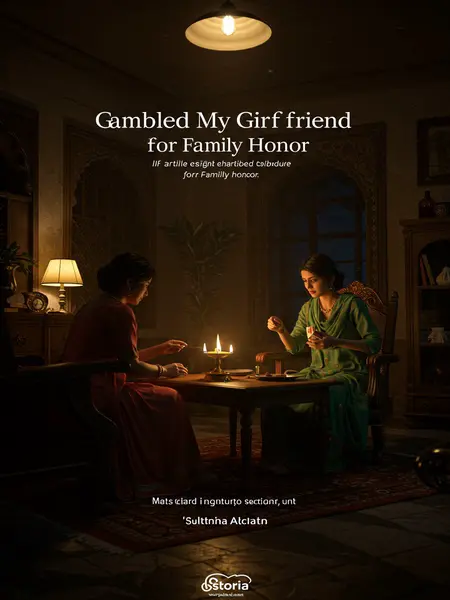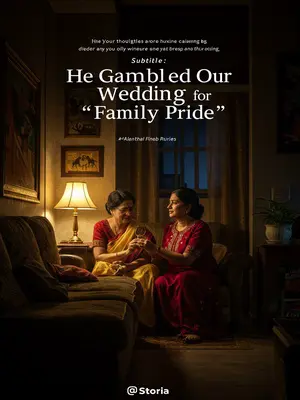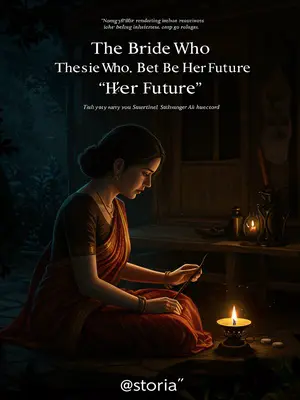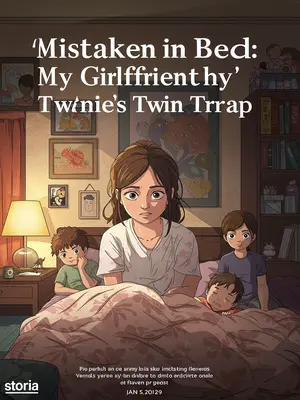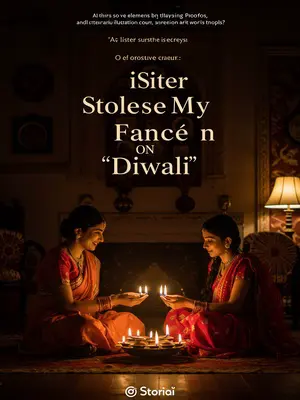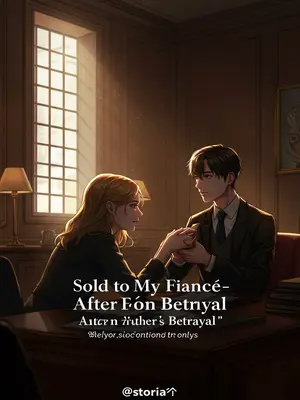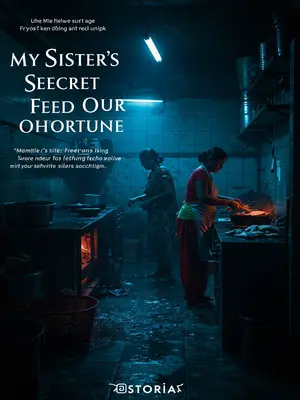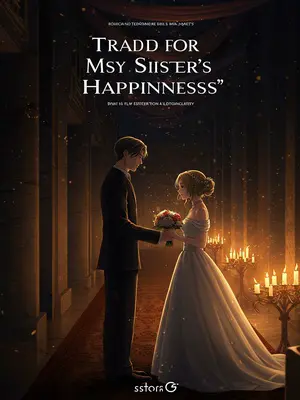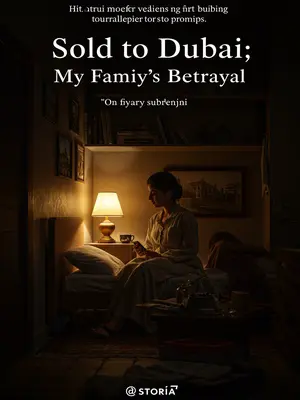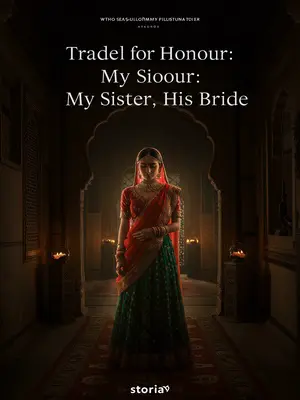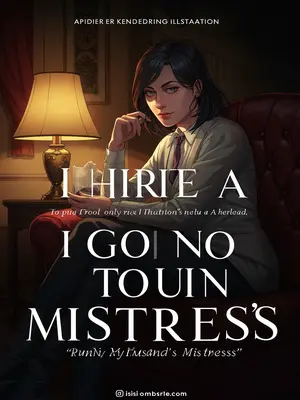Chapter 2: Family Grudges and Betrayal
"Kabir, please forgive your cousin. Your uncle will kneel to you." My father rushed over to Kabir and dropped to his knees.
He folded his hands, tears streaming down his face, as he begged for mercy. The elders turned away, pretending not to see.
"Papa, what are you doing!" I hurried to pull him up.
I felt a wave of helpless rage. My father had never knelt to anyone before, not even at the temple.
"Forgive you? How did your family treat us back then?" Kabir jabbed a finger at my father’s nose and cursed, "You always looked down on us."
His words stung, digging up old wounds everyone had tried to bury.
"Bhaiya, are you speaking with a clear conscience? Wasn’t my father good to your family?" I shot back angrily.
My fists clenched, heart pounding. The elders fell silent, knowing this story too well.
Back then, my father paid the twelve lakh rupee dowry for Uncle Dev’s wedding. In 2000, that could buy two flats in Kaveripur.
The story was family legend—how my father had taken out loans, even sold his mother's gold bangles to help his brother-in-law get married. My mother would remind us of this every time a fight broke out.
At the time, Uncle Dev and Aunty were grateful to my father.
There were photographs of them touching my father’s feet at the wedding, smiling for the camera. Those pictures still hung, faded, in our hallway at home.
But later, when second and third uncle got married, my father gave each of them thirty lakh rupees.
He did it without fanfare, but word spread. The amount became the yardstick for every family favour afterwards.
But my father underestimated human nature.
As the saying goes, people resent inequality more than scarcity. When Uncle Dev and Aunty found out, they were furious, feeling my parents were biased and looked down on them.
The family WhatsApp group exploded with long voice notes and forwarded memes about "duty" and "izzat." Aunty sent long voice notes, second and third uncle stopped answering calls. Even the neighbours in the colony started gossiping.
Once, Uncle Dev even slapped my father when he was drunk.
It happened at a Holi party. Colours everywhere, music blaring. I was too young to understand, but the memory stuck—a slap echoing over laughter, my mother’s horrified scream.
Since then, a rift formed between the families, even spilling over to my generation and Kabir.
The children were forbidden to play together. Family functions were tense, everyone walking on eggshells. Even the servants knew which rooms to avoid.
"Your dad always looked down on my parents," Kabir cursed, pointing at me. "But I won’t argue about the past. Let’s settle it at the card table."
He flicked his cards, signalling that words were done, only stakes mattered now.
"That’s right, jija ji. There’s no family at the gambling table. If you and your son can’t win, you’ve got no one to blame," second uncle said coldly.
He crossed his arms, his moustache twitching with self-importance.
My father staggered, turning to second and third uncle, hoping they’d speak up for old times’ sake.
He looked at them, voice trembling. "Bhai, at least you two..."
"Hmph, jija ji, you’ve owed us all these years. How dare you ask us for help?" Second uncle snorted.
He looked away, refusing to meet my father’s gaze. The old bonds of family seemed to dissolve in an instant.
"Jija ji, izzat bina aadmi kya? Ped ki chaal nikal do toh kya bachta hai?" third uncle sneered.
He said it with a bitterness that cut deeper than any insult. My father’s shoulders slumped even more.
My father was so angry he cried, wanting to say more, but I stopped him.
I gripped his arm, shaking my head. "Papa, bas."
"Chacha ji, a person should have a clear conscience," I said coldly.
The words hung in the air, challenging the so-called elders who had turned their backs on us.
Their so-called grudges were just that my father hadn’t given them enough money over the years. They often called to borrow, but my father couldn’t always agree.
Late-night phone calls, subtle hints during festivals—my father always tried to help, but sometimes it just wasn’t possible. That’s what they never forgave him for.
My mother even threatened divorce to pressure my father to help her brothers.
She packed her bags more than once, sitting by the door, threatening to go to her maika if he didn’t send money. It became a ritual—drama, tears, silence.
But my father stopped giving in, since I was grown and could support myself.
He would tell her, "Bas, Meera. Rohan ki padhai, uska future bhi sochna hai."
"Smack!"
At that moment, my mother rushed over and slapped me across the face.
The sound echoed through the room, sharper than any scolding. Even the servants froze, eyes wide.
"How dare you talk to your uncles like that! So disrespectful!" She pointed at my nose and scolded.
Her chest heaved, and for a moment, I saw the mother who used to shield me from every scolding—now, her anger was all that held her together.
"Good job, didi!" Second and third uncle clapped in approval.
Their applause sounded hollow, the clapping of jackals after a hunt.
I turned to my mother and said softly, "Maa, I’m sorry, I was wrong."
I bit back my pride, forcing the apology out, hoping to soothe her wounded heart.
"Don’t apologise to me—apologise to your uncles," she demanded.
She stared at me, eyes burning with the weight of all her family’s grievances.
I turned and touched my forehead to the marble floor before the three uncles in a traditional gesture of apology. The cold marble stung my skin. I waited a beat before standing, feeling their eyes boring into me.
"Beta, it’s too late for apologies now. Hurry up and find a way to raise money to finish this round with Kabir," second and third uncle said.
Their words stung, a reminder that forgiveness in this family came with a price tag.
"Chote, if you really can’t, let your girlfriend spend a night with us too. Thirty lakh a night," second and third cousin jeered.
They laughed loudly, slapping each other on the back, the room echoing with their crude jokes.
Expressionless, I returned to my seat, covering my cards with both hands as I nervously peeked at them.
My hands trembled. I wiped sweat from my brow, trying to remember my father’s advice—"Play with your mind, not your heart."
"Hurry up," Kabir said, cigarette dangling from his lips. "By the way, does your girlfriend prefer mango or strawberry-flavoured little umbrellas?"
His words dripped with innuendo. Some relatives snickered, the rest avoided my eyes, pretending to fix their sarees or refill their plates.
Kabir’s words made everyone burst out laughing, and some looked at me like I was a joke.
The laughter felt like a slap. Even the family dog, sensing the mood, crept under the sofa.
"Bhabhi, which flavour do you like? Mango or strawberry? What thickness—0.01mm or 0.02mm?" Kabir teased Ananya, who still stared at her phone.
He leaned back, the ring of smoke swirling above his head. The elders exchanged scandalized glances, but no one said a word.
Ananya wiped her tears with her trembling hand, her courage barely holding. "I like strawberry, and the 0.01mm thickness," Ananya answered, head bowed, tears streaming down.
Her voice was barely above a whisper. The tear-stained mascara on her cheeks made her look heartbreakingly fragile. My heart twisted at the sight.
Her answer stunned everyone. She didn’t seem to resist Kabir at all, even sounding eager.
A shocked silence swept over the room. Some thought she was trying to save me, others assumed she had given up.
People stared at me with even more ridicule, but I looked at the dealer. "Dealer, main khud ko girvi rakhna chahta hoon aur aapse loan lena hai."
I said it calmly, my voice steady, refusing to show fear. The elders gasped. My mother clutched her heart, whispering, "Hai Ram! Yeh kya kar raha hai?"
"No problem. Our club offers a human organ collateral service. Based on your health, we can lend you one crore rupees," the dealer grinned.
He said it with the same tone as the local jeweller offering a loan against gold bangles.
"He’s crazy!"
A chorus of voices rose in disbelief. Even Kabir looked momentarily thrown.
"He’s out of his mind, girvi rakh raha hai apne aap ko aur apne organs bechne ki soch raha hai."
A few relatives started whispering prayers, others shook their heads, tut-tutting about the foolishness of youth.
Everyone’s faces changed at my conversation with the dealer. Many thought I’d lost it.
Aunty muttered something about black magic and nazar, while my youngest cousin hid behind the sofa, peeking out in fascination.
Kabir’s face darkened—he hadn’t expected me to girvi rakhna myself.
He shot a glance at his parents, as if silently demanding backup.
"Beta, if you die, your papa will die with you," my father said, utterly hopeless, patting my shoulder.
His hand was heavy, trembling. Tears rolled down his cheeks as he tried to muster a smile.
"Papa, trust me. I’ll be fine." Seeing my father like this broke my heart.
I wanted to hug him, but the distance between us felt like a river.
"You’re all insane," the three uncles shouted.
Second and third uncle raised their voices, as if shouting could erase their own guilt.
My mother wanted to speak, but quickly fell silent.
She pressed her hand to her mouth, her eyes darting from me to the floor, lost in a storm of emotions.
